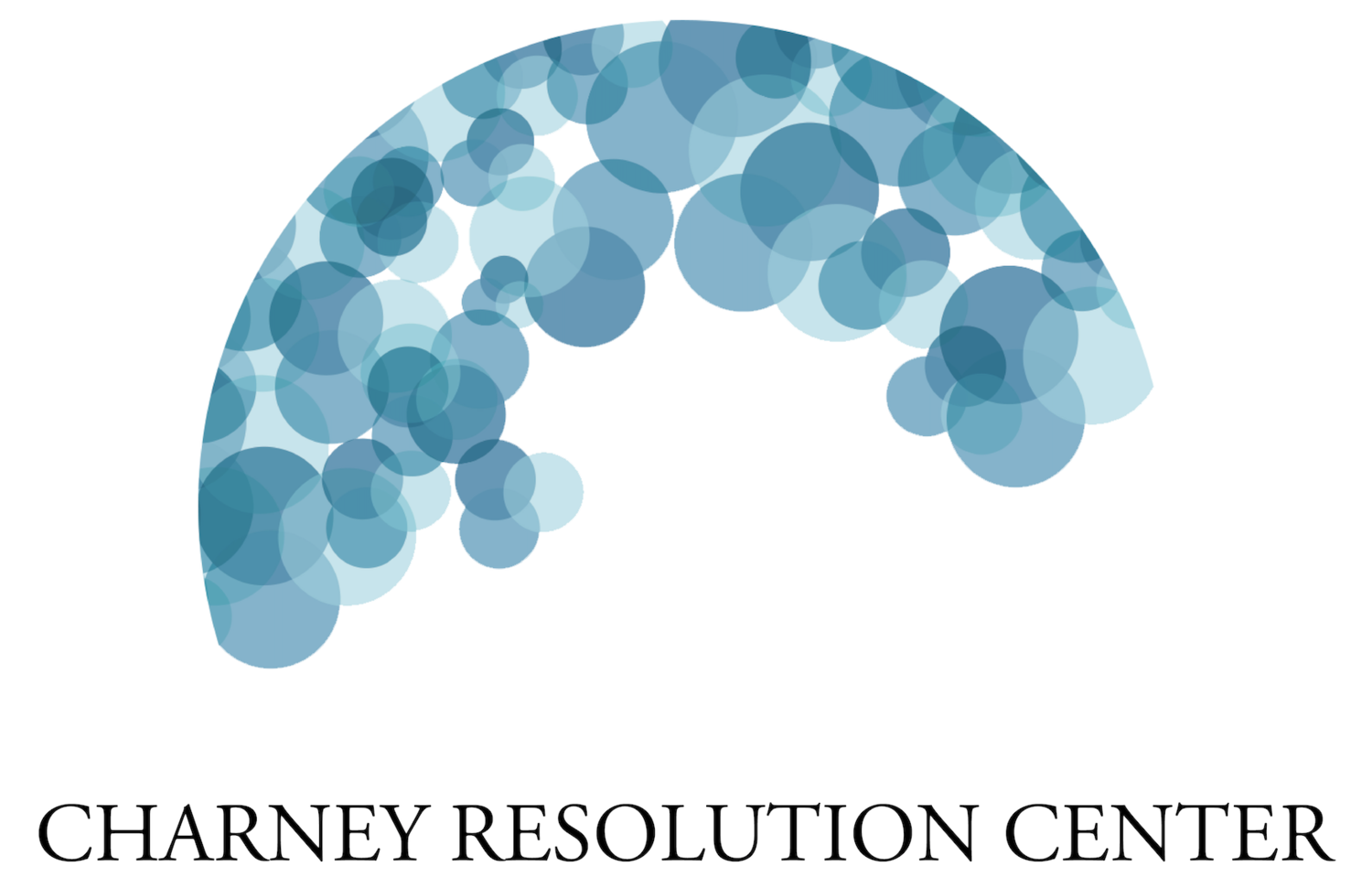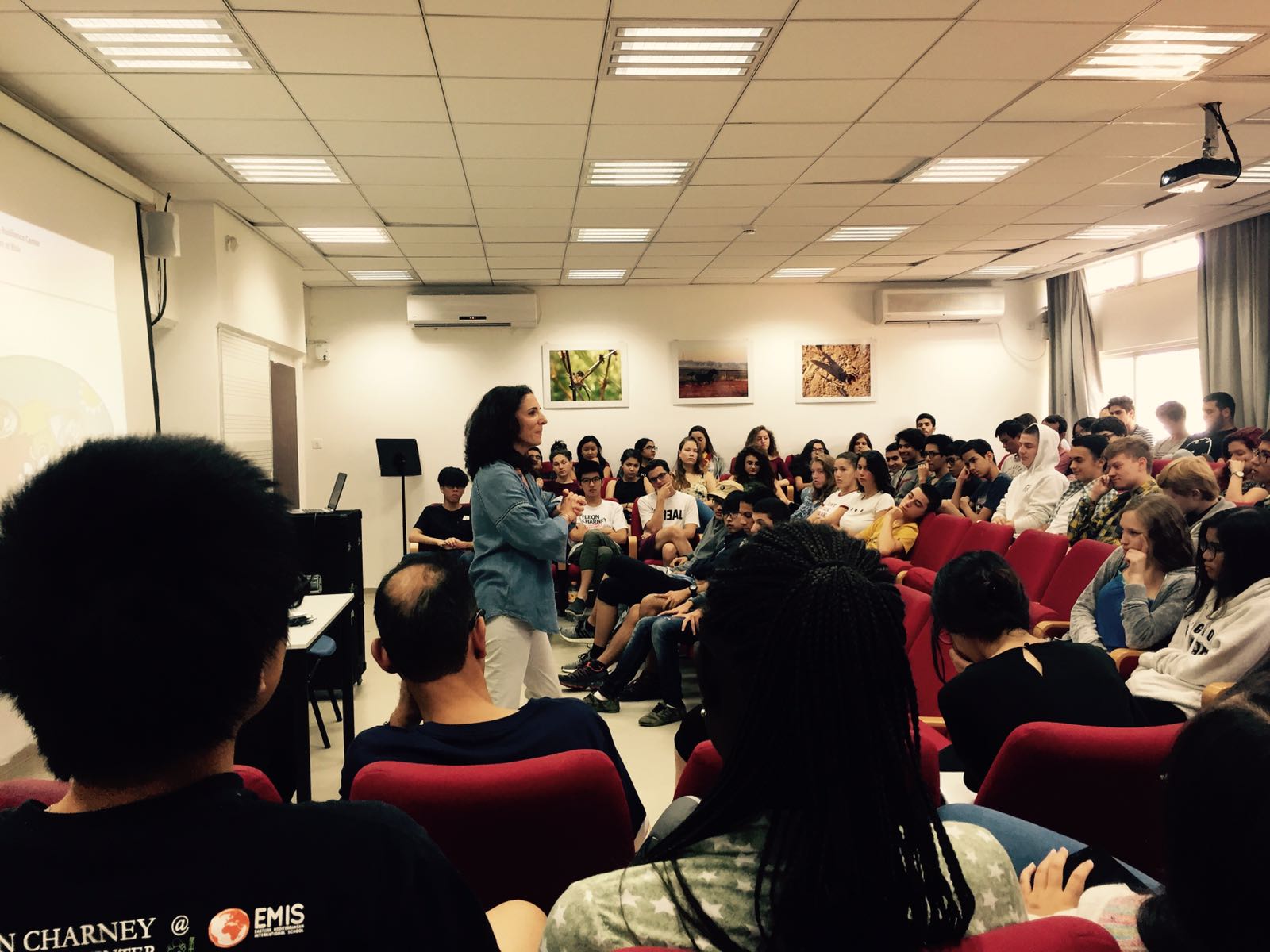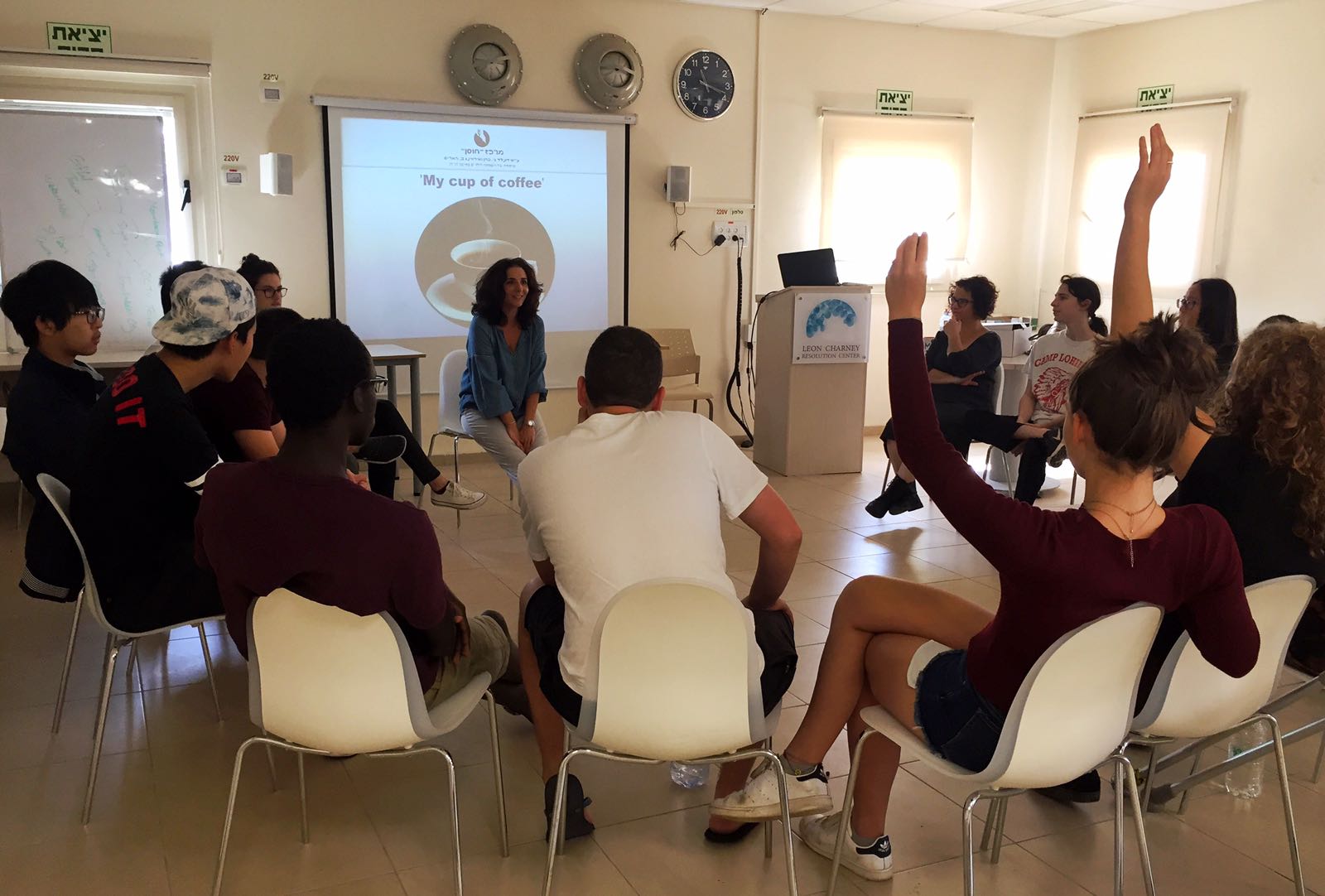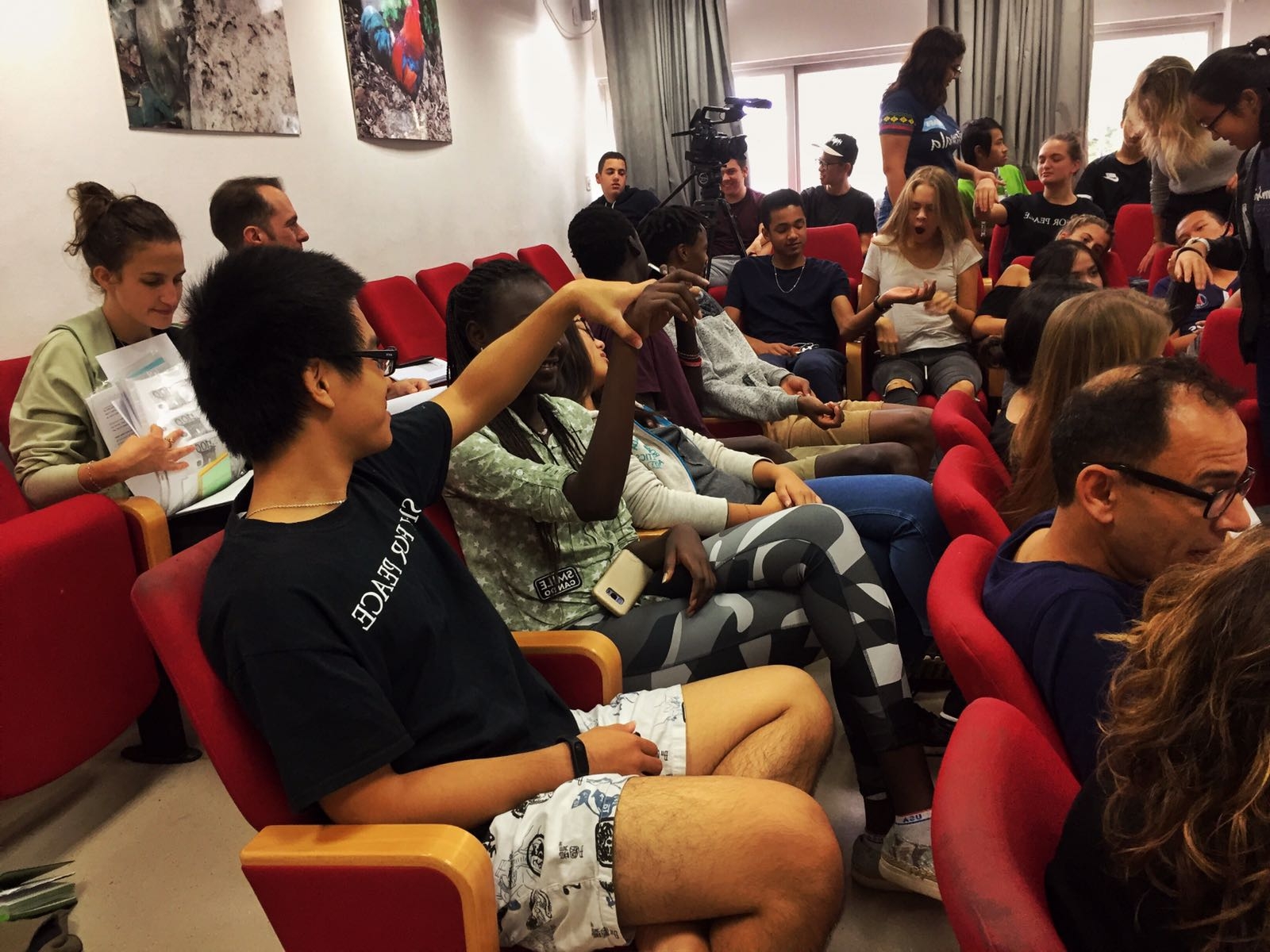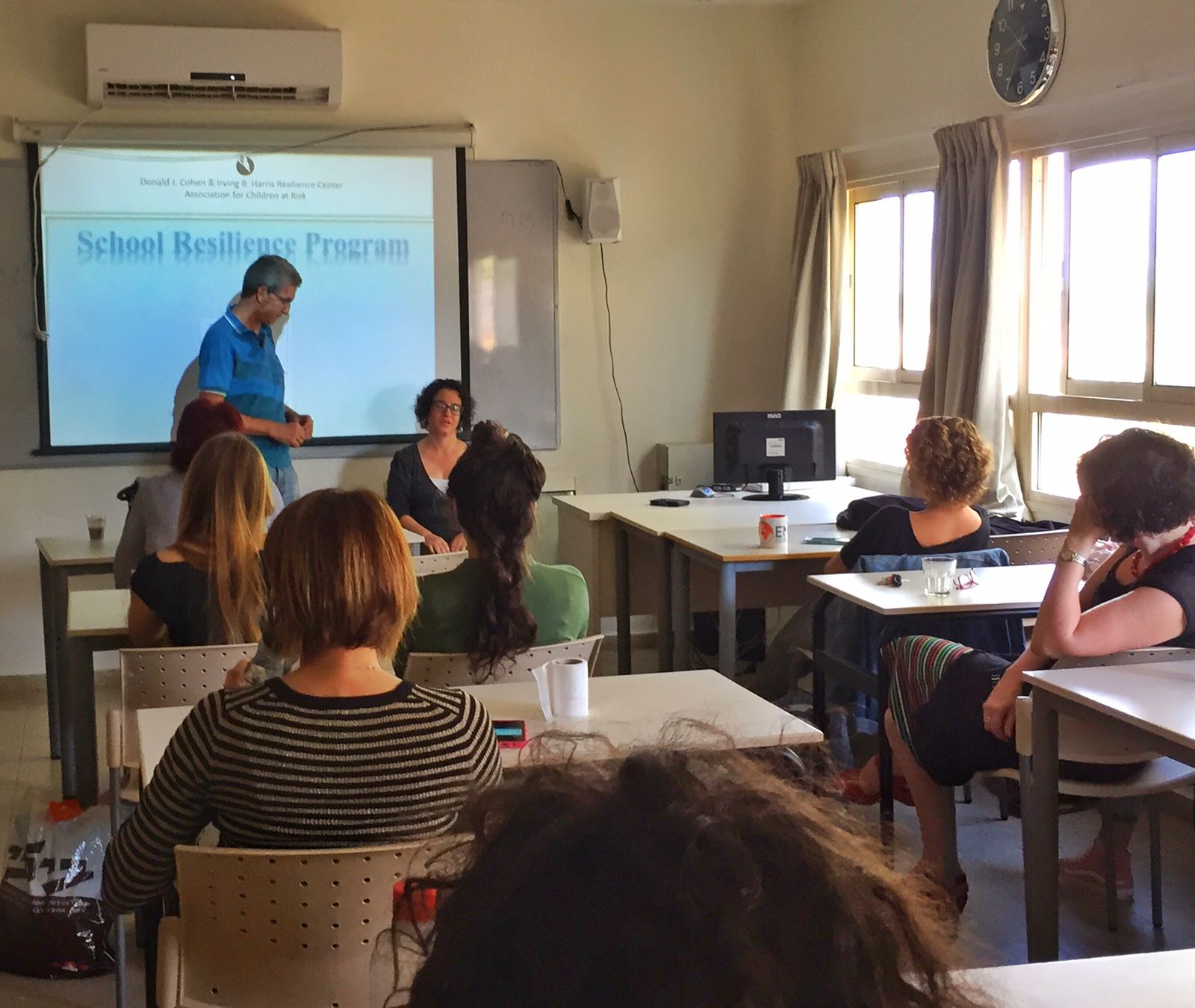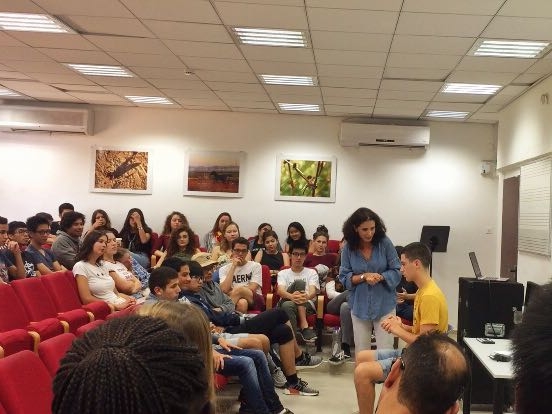On October 31st, Professor Danny Hamiel, Director of the Educational Intervention Unit of the Cohen Harris Resilience Center and the Head of the Cognitive-Behavioral Unit at the Tel Aviv Community Mental Health Center, began the anti-stress workshop delivering a lecture to teachers at the Eastern Mediterranean International School (EMIS). We invited Professor Hamiel and his staff to give a workshop to both teachers and students at EMIS to help provide the entire community with tools to better cope with stress. After the lecture, students were divided up into small groups where they shared stressors in their life and learned new tools and skills to help manage the various stresses they face.
At the start of the lecture for both students and teachers, a volunteer was asked to go sit at the front. The volunteer was then told that the lecturer was going to take and hold their hand. The lecturer then took hold of the volunteer's hand, held it in the air, and after a few seconds let go. This simple exercise demonstrated the subconscious effect control has on every individual. From the first request of letting the lecturer take hold of their hand, many volunteers instinctively hold out and present their hand to the lecturer. This is particularly true of Western volunteers who strive to be of assistance and please others, particularly authority figures. The second element of the demonstration is when the lecturer lets go of the volunteer's hand, a large majority of individuals will still have their hand in the air. This highlights the subconscious control that the volunteer continues to exert over their hand. The exercise shows how the volunteer struggles to naturally let go of control and relinquish power over their hand to the lecturer. After the demonstration everyone found a partner and began to experiment with the arm test to see how easy or difficult it was for them to let go of control. This began the students and teachers on an exploration of redefining what control is, and understanding that even at a subconscious level it is very challenging to truly let things go.
A stress-performance graph was then reviewed, which detailed that peak performance occurs when the right level of stress is applied. Too much leads to stress overload and potential increase of anxiety, panic, and breakdowns. Conversely too little stress leads to inactivity and lack of productivity. The challenge is to find the middle ground, where just the right amount of stress is applied to achieve the highest level of functioning and productivity. For students it is particularly important to find the proper amount of stress as it is easy to become overwhelmed by schoolwork, extracurricular projects and initiatives, and preparing for their future.
During the smaller discussion groups following the lectures, students learned more about mindfulness and being aware of the their own emotions and reactions. Reflecting on their own lives and the stresses they face everyday began the process of how they can better achieve the optimum stress level. Some of the tools the students were taught were breathing exercises that they can perform anytime to help them refocus and recenter themselves. EMIS students in particular face unique stress, as they are not only away from home, but they are constantly challenged to tackle serious and emotional issues that have thwarted adults for generations. By conducting the workshop at the beginning of the year the students were provided with resources that will help them succeed this school year and hopefully with all their future endeavors.
